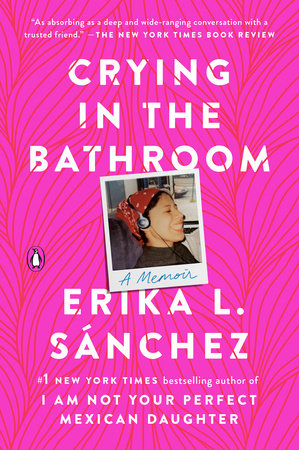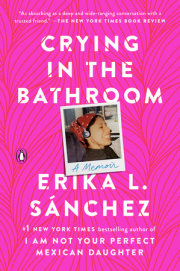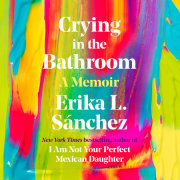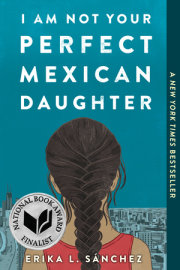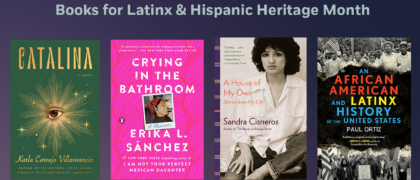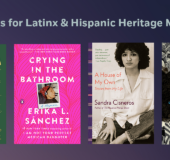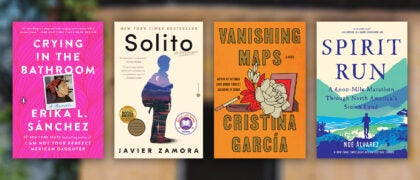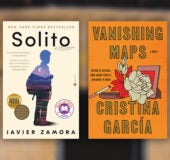The Year My Vagina Broke
On a crisp fall day during my senior year of college, I called a local feminist clinic in a state of panic and described, in great detail, what was happening to my vagina. I was standing outside one of my classes, hoping no one would hear me chronicle the goings-on of my nether regions. Weeks prior I had begun experiencing an itching and burning sensation, and I very quickly concluded that I had an STD. The woman on the line was patiently reassuring me that it was likely a "garden variety" vaginal infection, but I wasn't convinced. To me, "garden variety" made it sound like what was happening between my legs was fecund and beautiful, when it was most definitely not. "Are you sure?" I asked, pacing, autumn leaves crunching under my feet. "What if it's an STD?"
Just the thought of it filled me with shame and disgust. It didn't matter that I had had sex with only one person, who was a virgin, with a condom, in the past few months. I was convinced I was a diseased degenerate. Even though I considered myself a feminist, and it was 2005, and I knew that sex-even the casual kind-was not inherently evil or immoral, I believed that God or the Universe or perhaps my pious female ancestors from the great beyond were punishing me for putting out. Cochina, I thought to myself.
For the first three years of college, I commuted to campus on the train from my parents' house. It was not at all what I wanted, but I couldn't afford to live in student housing or rent an apartment, not even the dankest of hovels. I hatched all sorts of plans and schemes to gain my independence, but the meager wages I was making from my part-time job at the university registrar weren't enough to keep me from being broke, so I was stuck living with my parents. And they weren't exactly raking it in as factory workers, so there was no possible way I could ask them for money to move out of their perfectly good house. That was some white people shit.
I'd just spent the summer leading up to my senior year studying abroad in the city of Oaxaca (on a big, fat student loan), so living at home for my last year of college began to feel absurd. I had wandered across Mexico alone, nursing a broken heart after my boyfriend of two years told me he didn't love me anymore and quickly replaced me with a homely white girl. For weeks, I partied with the rich Mexican friends I'd met while sobbing on the beach one afternoon. I drank so much mezcal that I gave myself pancreatitis and had to be hospitalized. I had lived. Now I'd suddenly be informing my parents of my whereabouts? And at twenty-one? Naw.
So early in the year, I packed my things and moved in with a friend who lived in an apartment across the street from our old high school, about a mile away. My parents were livid. Old-school Mexicans, they considered my leaving home simply because I felt like doing so a violation of my role as daughter. In their eyes, I was both ungrateful and disrespectful, which wasn't entirely untrue, but not because I was moving out. Leaving home at this age, and unmarried, was not something that any women in my family had ever done. It was a stunning and unprecedented affront. But that didn't stop me.
I paid two hundred dollars a month to rent my friend's spare bedroom, and that was half the rent. Her father owned the building, which, I imagine, is why it was so unbelievably cheap. That and the fact that the place was, unfortunately, a dump, with yellowed walls and faded linoleum floors in the kitchen.
I had outrun the roaches of my childhood only to be greeted by them once again-It's nice to see you, Erika. We missed you. The kitchen had a clinical yet sordid quality that suggested pain and desperation. Everyone looked sad and gaunt under its fluorescent light. A friend described it as "a place where people would shoot up heroin or some shit." My bedroom wasn't much of an improvement. For some mysterious reason, there was a giant broken mirror resting against one of the walls, and I never bothered to remove it despite the obvious danger. I just used it to look at the lower half of my outfits and pretended the sharp edges couldn't possibly hurt me.
I was so broke that I slept on an air mattress for the first two months. Some nights, I'd wake up flopping all over the place when it had deflated. Needless to say, I slept like absolute shit, and I would have continued to do so if one of my aunts hadn't bequeathed me her old bed. My books, my most prized possessions, were stacked on industrial shelves that were likely purloined from a factory. And I didn't have a closet, so the clothes that didn't fit in my dresser (did I even have a dresser?) were strewn all over the place. When it was hot, I writhed in bed all night without an air conditioner; in the winter, I wore layers of clothes to keep from shivering. Another friend visiting me one evening took one look around and said, in disbelief, "Wow, you live like Charlie from Willy Wonka and the Chocolate Factory." I was mildly insulted, but proud nonetheless to be living on my own with no one else's help.
With such limited income, I learned to strategize about food. My friend and I ate lots of pancakes, eggs, and pasta that year. It was then that I understood the food of my childhood: flautas de papa, sopa de fideo, Mexican spaghetti, refried beans. Starches and fats were the cheapest way to get full (duh), but it had never occurred to me until I bought my own groceries. I also drank many five-dollar bottles of wine because it made me feel so adult to buy them at the grocery store. All those years anxiously waiting to drink legally and the time had finally come. Look at me being a lady of the highest sophistication.
I affectionately called this my slut year. (Little did I know, there would be other iterations in my future.) Despite not actually having much sex, I dated frequently to get over my breakup. Rather than pausing to assess my own wants and needs, I distracted myself with men. I went out with men I wasn't even attracted to, partly out of boredom, partly out of a desire to be desired. Friends of friends, guys at bars, classmates, whatever. I was an equal opportunity ho. Not surprisingly, some of the fellas were tough on the nervous system. There were times I was certain I wouldn't be interested in a second date but agreed to a first just for the hell of it. I couldn't stand to be alone with my thoughts. I made a lot of bad choices at this time. For a brief spell, I fucked a virgin who once answered his mother's phone call while he was still inside me. I just stared at him, mouth agape, while he argued with his mom in Polish.
Like most college kids in their senior year, I was eager to attend any party or alcoholic gathering I was invited to. No time was too late for me to leave the house; no night was off-limits. I could be coaxed out of my apartment, and out of my pajamas, at ten o'clock on a night before an exam. I would change quickly and run out of the apartment to meet friends at whatever gross dive bar was hopping at that time. It was almost always a guaranteed disappointment, but I went because what if it turned out to be the best night of my entire sad life?
Several weeks into the school year, my friend Martha had an early Halloween party in her small attic apartment. She lived in the neighborhood on the South Side called Back of the Yards. Martha was a few years older, and I had known her since high school. We'd been in college together for a while, but by my senior year, she had dropped out. I had always looked up to Martha, because she dressed Goth and liked to talk about books. She introduced me to new authors, clove cigarettes, and a lot of new wave and alternative rock bands. She had vague aspirations of becoming a writer, but follow-through was not her strong suit. Also, her butt sloped inward, which I feel factors in somehow. You be the judge.
There was always something insidious about Martha-a backhanded compliment, a critique cloaked as tough love, a harsh observation about my appearance. Bad vibes, spirits, energies, jujus, and vapors galore. Martha would always hurt my feelings, and because I wanted her approval, I would brush it off and convince myself that I was too sensitive, which is what everyone in my life had always insisted. My sensitivity had always felt like a curse I needed to break.
During Martha's party, a man with a beautiful brown face began flirting with me. He had also gone to our high school and was a few years older. His name was José. My memory of José was hazy. All I could recall was that he'd gotten his high school girlfriend pregnant their senior year. He was attractive in an obvious sort of way, so I didn't consider him a romantic option at first-I preferred a more understated handsomeness, a face with character. He knew he was hot, too, and looked like he was perpetually posing for a photo, lips pouty and eyes feigning deep thoughts. I always believed that these kinds of men weren't interested in me, as I considered myself an all-around weirdo. I kept looking around to see if maybe I misunderstood and he was actually speaking to someone else, that perhaps there was another, hot girl behind me. But no, it was me he was eyeballing. I shrugged it off and walked around the party with a giant goblet of wine that seemed to refill itself. At one point, I was so drunk I had to lie down on my friend's bed. A few minutes later José came in and closed the door.
It was the drunkest I had ever been, and I could hardly hold myself up. José and I made out for a while until I had to push him aside to throw up. Most of it landed on the bed. At some point he left and I fell asleep in my own vomit.
The next morning I found Martha and her boyfriend at their kitchen table drinking coffee. My head throbbed and my stomach was sore from throwing up, which had been not only poorly timed but also violent. To this day, I've never been more hungover than I was that morning. I felt like an old mop that had been wrung out. I apologized to Martha and her boyfriend for ruining their sheets and promised I would replace them. They assured me that it was fine, that sometimes shit happens.
"How did it go with José?" Martha smiled coyly. She wasn't wearing her signature black lipstick and her face looked both blank and unsettling, like a fraught canvas.
Something tugged deep within me, but I couldn't name it at the time. Part of me felt like maybe she had done me a favor, since, you know, he was so hot and all and I was such a weirdo.
"We made out, then I threw up, so nothing happened," I said. Maybe I even laughed.
"He was looking for you, so I told him to look in my room. You're welcome," she laughed.
I used to believe that rapes happened in dark alleys and parking garages. I thought they had to be physically violent, the man forcing your legs open. I was a child of the '90s weaned on after-school specials and made-for-TV movies about innocent white girls losing their virtue at the hands of a psychopath. It was all "No means no!" I had never considered that rape could happen when you're so drunk you can't even hold your body upright and you're vaguely attracted to the guy who creeps into the room where you're fading in and out of consciousness. We didn't talk about consent, let alone ongoing consent, enthusiastic consent. We didn't talk about slut-shaming, toxic masculinity, and misogyny in women, about the interconnectedness of all these things. We can't identify what we don't have the language for. And so I didn't have words for what had happened to me. I knew that whatever it was, it felt wrong, but I wasn't entirely aware of why I felt that way.
Martha's behavior left me uncomfortable, like I was wearing an itchy shirt that I just learned to ignore. It would take me a long time to understand the gravity of what she had done-many years after, we stopped speaking. I'd asked her for a safe space to lie down, and she'd offered me up for the taking. We fought a lot that year about things unrelated to what had happened at her party. It was as if my mere existence offended her. After one such fight, another friend of mine began referring to her as "Selena's killer." He'd seen a picture of the two of us at a party where I am smiling at the camera while she is scowling and looking at me sideways. She legit looks like she is about to murder me. Martha and I eventually had a giant falling-out, which seems to have been inevitable, as she turned out to be a hater in the highest degree. We made a few feeble attempts to reconnect over the years, but I stopped after she randomly went nuts on a benign Facebook post of mine.
My vagina continued to itch and hurt, and I couldn't stop thinking about it. The situation seemed hopeless until I had my first appointment at the Chicago Women's Clinic. I had volunteered there a number of times, and so I knew and respected their philosophy and had a lot of faith in them as a result. The practitioners, most of whom were nurses and midwives, didn't cover the lower half of your body during exams, because they believed it was important that you see and understand what they were doing. They also warmed their speculum (as everyone should), and the stirrups were covered with knitted cozies. The clinic had been around since the 1970s and the outdated wood paneling made me feel like I was sitting in someone's grandma's house in rural Wisconsin.
During my initial visit, a nurse offered to show me my cervix in a mirror. I was nervous and even skeptical for a moment because I had never seen it before-I was only familiar with my outer layers-but I agreed. I knew I shouldn't be afraid of my own body. I was a feminist, after all.
Copyright © 2022 by Erika L. Sánchez. All rights reserved. No part of this excerpt may be reproduced or reprinted without permission in writing from the publisher.

